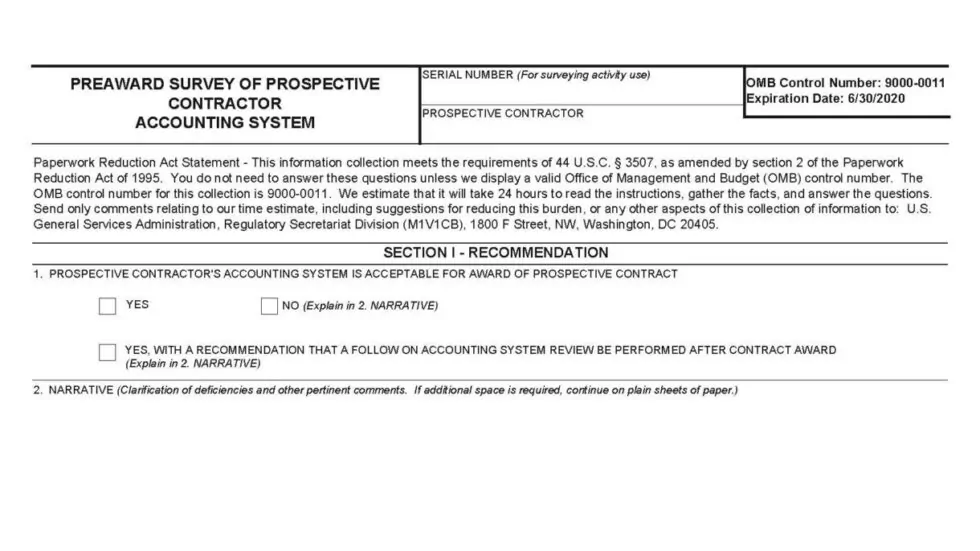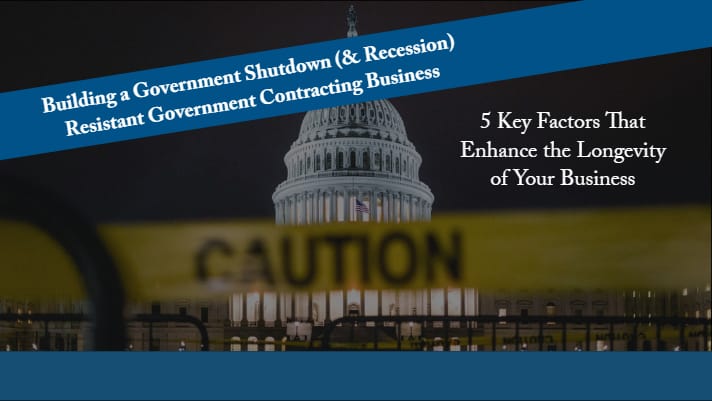In late 2017, Congress introduced the Tax Cuts and Jobs Act (TCJA), which affects 2018 taxes. According to Section 199A of the TCJA, some owners of pass-through entities could be eligible for a substantial deduction of up to 20 percent of their taxable income. Here, we will cover the new deduction, as well as how it may affect your govcon business. We will close with next steps for you to take.
What is a pass-through entity?
A pass-through entity is a type of organization that isn’t subject to income tax. Instead, the income “passes through” the organization to the owners, who then pay taxes individually. These entities are designed to ensure that the owners aren’t paying taxes twice on the same income. Pass-through entities include sole proprietorships, partnerships, LLCs and S-corporations.
Do all pass-through entities qualify for the full deduction?
No, not all businesses qualify for the deduction. On August 8, 2018, the IRS came out with proposed regulations providing guidance on the deduction. First, your business must have Qualified Business Income (QBI). Secondly, the deduction has potential limits for any trade or business deemed a Specified Service Trade or Business (SSTB).
How does Section 199A affect government contractors?
One of the SSTBs specified in the new law are “services performed in the field of consulting.” Many services performed by government contractors include consulting services. Thus, it is necessary to determine whether those services fall under “consulting services” as defined by the regulation.
Are your services considered consulting services?
In the proposed regulations, the IRS defines consulting as “the provision of professional advice and counsel to clients to assist the client in achieving goals and solving problems.” In addition, “consulting includes providing advice and counsel regarding advocacy with the intention of influencing decisions by a government or government agency.” However, the “performance of services in the field of consulting does not include the performance of services other than advice and counsel, such as sales or economically similar services or the provision of training and educational courses.” It also does not include “the performance of consulting services embedded in, or ancillary to, the sale of goods or performance of services on behalf of a trade or business that is otherwise not an SSTB if there is no separate payment for the consulting services.”
Therefore, if you only offer advice or counsel as a service, you most likely are considered an SSTB. If, however, you provide customers with other services or products and include advice or counsel ancillary to those services or products, then you are probably not considered an SSTB. Consider two examples from the proposed regulations:
Example 1. A is in the business of providing services that assist unrelated entities in making their personnel structures more efficient. A studies its client’s organization and structure and compares it to its peers in its industry. A then makes recommendations and provides advice to its client regarding the possible changes in the client’s personnel structure, including the use of temporary workers. A is engaged in the performance of services in an SSTB in the field of consulting within the meaning of paragraphs (b)(1)(vi) and (b)(2)(vii) of this section.
Example 2. B is in the business of licensing software to customers. B discusses and evaluates the customer’s software needs with the customer. The taxpayer advises the customer on the particular software products it licenses. B is paid a flat price for the software license. After the customer licenses the software, B helps to implement the software. B is engaged in the trade or business of licensing software and not engaged in an SSTB in the field of consulting within the meaning of paragraphs (b)(1)(vi) and (b)(2)(vii) of this section.
If some of your services are considered SSTB and other services are not, then you may still qualify for the deduction by applying the de minimis rule. Currently, the de minimis rule for contractors with less than $25,000,000 in gross receipts is as follows: If the SSTB portion is less than 10 percent of the gross receipts, then all income is considered QBI.
For contractors with greater than $25,000,000 in gross receipts, the SSTB portion must be less than 5 percent of gross receipts for all income to be considered QBI.
Otherwise, if SSTB gross receipts is greater than 10 percent or 5 percent respectively, then the deduction is reduced (and may even be eliminated) based on certain income thresholds, wages incurred, and other factors.
Final Thoughts
If you are a government contractor that does some consulting services, there are steps you can take to help reduce your taxable income in the future. First, make sure you have a full understanding of contracts and identify which part of your income is Qualified Business Income and which is considered a Specified Service Trade or Business. In the future, attempt to include ancillary consulting services along with services that are not considered consulting as part of your contracts. Do not list consulting services separately on your invoices or have separate contracts for these services. Finally, it’s important that you stay abreast of new information as these are only proposed regulations that may change in the future. We are still waiting on final regulations and will provide updates as these regulations are released.
Stephen G. Dasher, CPA
In addition to being a partner in the firm, Steve Dasher is also the firm’s quality control shareholder. He has over 25 years’ experience working with closely-held government contracting businesses specializing in growth, development, performance, and strategic planning. Steve’s consultative services have included interfacing with various government audit agencies during compliance audits for government contractors and assistance with indirect rate development required for proposals by government contractors, mergers and acquisitions.
Interested in a more tailored look at how these new tax laws could affect your govcon business? One of our experienced business consultants would be happy to discuss how these proposed changes could impact you.



